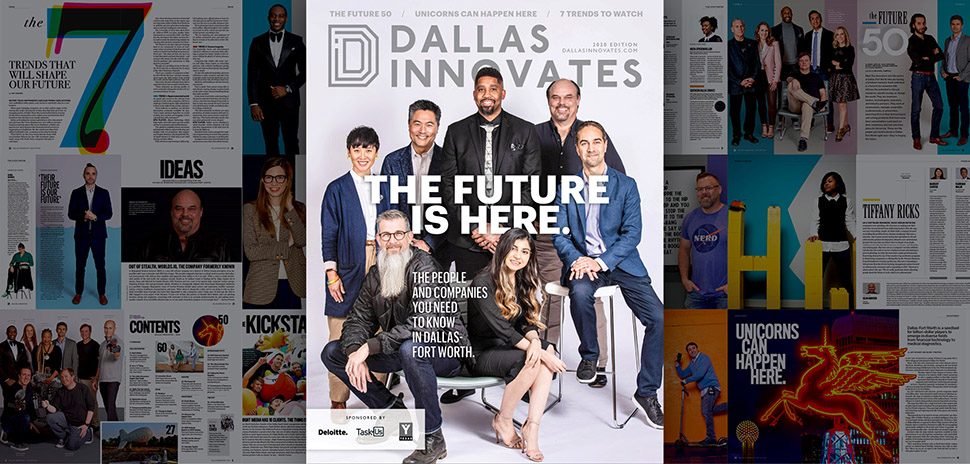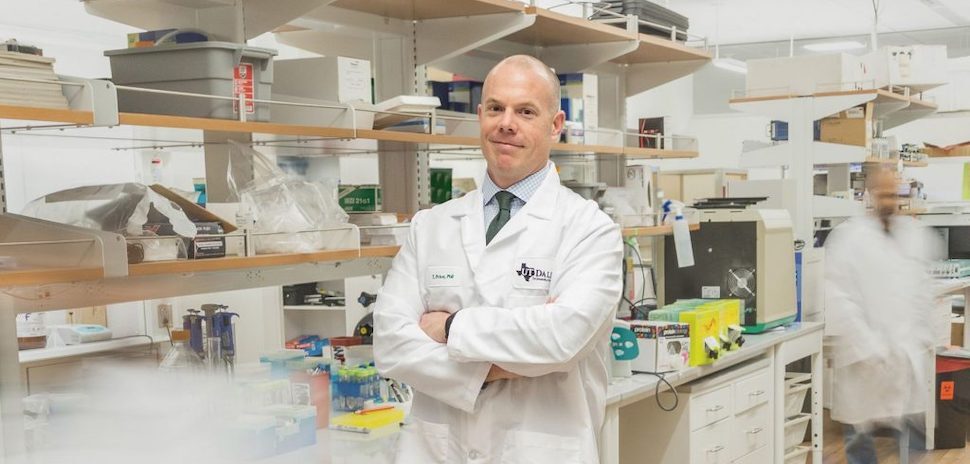Can artificial intelligence help detect breast cancers early on, improving outcomes for a diverse group of patients? That’s the goal of an advanced AI software platform from Dallas-based MedCognetics—and last week it received a key clearance from the U.S Food and Drug Administration.
MedCognetics announced it has received FDA 510(k) clearance of its artificial intelligence-enabled software for breast cancer screening, allowing the company to market and sell the system in the U.S.
The software platform, branded as QmTRIAGE, integrates into radiology workflow and has a high rate of detection accuracy, according to Debasish “Ron” Nag, CEO of MedCognetics. The early-stage startup, which was founded in 2020, is developing a new generation of AI medical imaging technology.
MedCognetic’s initial focus is on improving early breast cancer detection, particularly for diverse patient groups. QmTRIAGE aims to detect small or obscured tumors within dense breast tissue, which can be challenging for other AI systems.
“Unbiased” algorithm
The need is clear: “The American Cancer Society has stated that in 2022, approximately 287,850 new cases of invasive breast cancer will be diagnosed in women,” Nag said in a statement.
The platform uses an advanced imaging algorithm that leverages AI and machine learning to detect the earliest signs of cancer in all ethnicities. According to the company, the algorithm is unbiased and designed to improve the accuracy and reliability of breast cancer screening.
The FDA clearance is an important first step for the company as it works toward expanding to other realms of cancer, the CEO said.
MedCognetics, which has an initial patent pending and two related patents in progress for its technology, sees a rapid expansion into specialties such as lung cancer.
Aiming to address a global shortage of radiologists—while reducing ‘burnout’

Debasish “Ron” Nag
The QmTRIAGE also aims to help radiologists struggling with unmanageable caseloads, the company said. According to Margaretta Colangelo, an independent analyst focused on AI, there is currently a “10 times” global demand for radiology services compared to the number of available radiologists—and 50% of practicing radiologists are experiencing depression or burnout.
MedCognetics’ AI tech aims to help those overburdened radiologists by providing both the “scale and performance” to address the gap—while improving the efficiency and effectiveness of medical imaging. “Our software’s high detection accuracy enables reduced time for review by radiologists, another key component to improved outcomes,” Nag noted.
Performance improvement can translate to billions of dollars in efficiencies, according to the company. Other advantages of AI in medical imaging include reductions in lawsuits exposure, improved access for “second-tier” locations, and allowing for general radiologists to perform at a breast-imaging specialist level.
Worked with UT Dallas and UT Southwestern on improving outcomes for ‘all ethnicities’

Lakshman Tamil
Nag says his company placed a great deal of focus on improving outcomes for a diverse society. Today’s AI Systems are trained on small, non-diverse data sets, and don’t represent all patient races and ethnicities, his company notes.
“MedCognetics is committed to leveraging our technology to help improve outcomes across a diverse group of patients and to do so, partnered with both University of Texas at Dallas and University of Texas Southwestern Medical Center to address these disparities.” Nag said.
Lakshman Tamil, Ph.D., a professor at UT Dallas, is co-founder of MedCognetics.
The company’s core team, which has been working together since 2019, also includes Chief Medical Officer Vasant Garg, M.D.; Tim Cogan, Ph.D., head of AI/ML; Quality Manager John Jenkins; Clinical Development Officer Paula Gupta, M.D.; and Chris Beaty, VP of operations.
Received $750K from the NIH for unbiased AI study
The company—which received $750,000 from the National Institutes for Health for its unbiased AI study—says it leverages “nine independent data sources worldwide” to help it ensure data diversity.
UT Southwestern’s Basak Dogan, M.D., is working with the company to help train its system.
“At UTSW we work to integrate existing and pipeline AI algorithms at the earliest stages of disease, which is key to saving lives,” Dogan said in a statement. “We work with MedCognetics to help train their system on detecting early-stage breast cancers which is important to help use AI for breast cancer detection as a standalone tool. We’re pleased to partner with MedCognetics in our mission to help maximize lives saved from breast cancer.”
Growing use of AI in breast imaging—and concern about racial disparities
The use of AI in breast imaging has been growing rapidly, and currently represents 15% of the total AI imaging market, according to MedCognetics.
The challenge: Studies have shown that the use of artificial intelligence can lead to “data bias” impacting people of color. An investigation by STAT—a health and medicine-oriented news service produced by Boston Globe Media—explored whether AI tools for breast cancer worsen disparities.
STAT said “patchy public data in FDA filings” have fueled concern. The investigation noted that when the FDA grants clearances to AI products without requiring them to publicly disclose how extensively their tools have been tested on people of color, it “threatens to worsen already gaping disparities in outcomes within breast cancer, a disease which is 46% more likely to be fatal for Black women.”
MedCognetics’ partnership with UT Dallas and UT Southwestern to address the issue reflects how important the company believes the issue to be. So much so that the company reproduces the above STAT quotation on its own website.
Quincy Preston contributed to this report.
![]()
Get on the list.
Dallas Innovates, every day.
Sign up to keep your eye on what’s new and next in Dallas-Fort Worth, every day.


































































